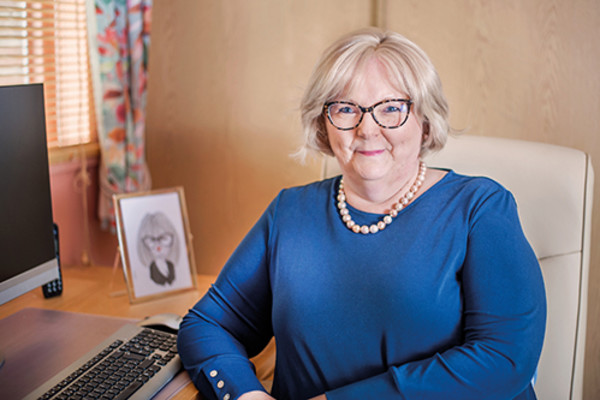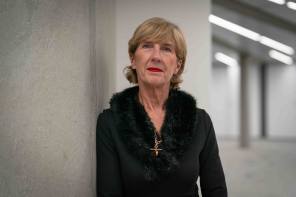

The next six months are going to be very busy for Caroline Cochrane.
She is embarking on a new venture with her two daughters as she sets the stage for her succession plan.
Ms Cochrane, who co-founded IFA business Crandles and Co, where she currently works, is setting up a new firm – Verity Financial Planners – in the new year, which her daughters will eventually run.
“It has been my intention for some time to gradually pass the business to my daughters,” she says.
“This is more difficult within a partnership, especially with a business partner who is not a family member and so a new family firm was the cleanest way of realising my plans.”
Ms Cochrane and her partner have always had their own clients so the understanding has been that, should either of them wish to leave the business, then their clients would move with them.
“Both Crandles and Co and Verity Financial Planners will be part of the Tenet Services Network and so we hope that the transition should be reasonably straightforward,” says Ms Cochrane.
“Paul [Crandles] and I have known each other for more than 20 years and we have always worked well together. We have made a commitment to an amicable split and to support each other in the future.”
A last hurrah
Understandably excited, Ms Cochrane says this is likely to be the last time she sets up another business before she retires.
“It has been great to involve my daughters. [Their] roles will expand as they start to take responsibility for running parts of the business and we are looking to retain the reputation we had with Crandles and Co.
“I have been a financial adviser all their lives. They see the benefits of a career in financial advice and very much look forward to being decision-makers in their careers. We work well together and I am very flattered that they wish to follow in my footsteps.”
Emulating their mother is perhaps a no-brainer, as Ms Cochrane says being a financial adviser is one of the best careers a woman can have.
“Because of the way [advice] is charged and so forth, I could match my colleagues for the amount of business I wrote,” Ms Cochrane adds.
“So I was never reliant on somebody deciding to promote me. My business grew because I grew [it] organically. And the hours have always been incredibly flexible.”
Her two daughters, Rebecca and Olivia, work at Crandles and Co as a qualified financial adviser and paraplanner, respectively.
Rebecca advises and meets clients on her own, while Olivia sits in on meetings but cannot advise. She is working towards becoming fully qualified.
Ms Cochrane says working with her daughters means the business can build a second generation of clients who will be there through Rebecca and Olivia’s lifetime – a key element of the company’s succession planning strategy.
Motherly advice
A key piece of advice Ms Cochrane says she has passed on to her daughters is why it is so important for clients to trust their adviser.
She says: “Part of that is: I am not frightened to tell a client something they might not want to hear.”
Another is understanding the value of being a female financial adviser.
“I think women have a very empathetic way of dealing with people,” Ms Cochrane says. “[For female IFAs] there are absolutely no barriers. You work as hard or as little as you want. You create your business and get paid accordingly.”
Even as an expectant mother more than 30 years ago, pregnancy was not a barrier to working as an adviser
As she looks ahead, her daughters will be inheriting a business in a world not all too dissimilar from Ms Cochrane’s early days.
After graduating in 1980 with a degree in physiology and pharmacology from the University of Edinburgh, graduate jobs were scarce: the economy was not doing particularly well.
Ms Cochrane was then headhunted by a Canadian life business for a life underwriter role. At the time, there were only 312 life underwriters in the UK – and only 10 of these were women.
The company was subsequently bought by Sun Life and then in 2000, Ms Cochrane, became an independent adviser, later starting up Crandles and Co in 2010.
Impact of Covid
Although the world of financial services has become a lot more complicated since her early days, she has always enjoyed meeting with clients.
But like many companies this year, lockdown rules has meant client meetings are still being done virtually.
The peak of the crisis also put a downward pressure on ongoing fees at Crandles and Co – a situation she says has improved.
Ms Cochrane says: “We have been able to continue and are back to where we were before Covid-19. You learn to use tech, such as Zoom, and make clients comfortable.”
She remains optimistic that markets and the economy will recover: this is not her first crisis.
“We speak to a lot of fund managers and their story is that the underlying economy has not collapsed – we have just had to unfortunately stop everything,” says Ms Cochrane.
“I have worked through bad times. It gives you confidence, when you work through times like that.
“I don’t want to make light of things like furlough. People unfortunately will lose jobs and the economy will change, but we will just evolve into something else.”
Ima Jackson-Obot is deputy features editor of Financial Adviser and FTAdviser



